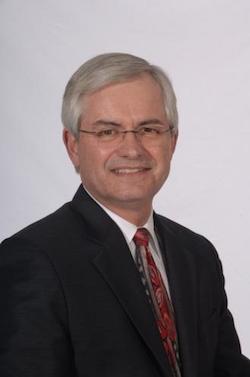Interview with Dr. Rodney G. Alsup, Professor of Accounting, Emeritus
Masters In Accounting recently had the opportunity to interview Dr. Rodney G. Alsup, who is Professor of Accounting, Emeritus. Dr. Alsup has over thirty years of experience in teaching and administrating in higher education, much of which has centered on working with MBA students. Dr. Alsup also has an extensive list of publications to his credit, and has spoken and presented at numerous conferences on leadership, graduate learning, and MBA programs, among other topics. Dr. Alsup shared with us some of his top advice for graduate students in finance and accounting.
1. What advice do you have for students who are feeling overwhelmed by a challenging course or course load?
 Students can expect to feel overwhelmed by a challenging course or course load in graduate school, especially part-time students who have family responsibilities and are employed fulltime. Many part-time graduate students think they can just add their classwork to their already busy schedule. The first thing part-time students must do is acknowledge that their graduate program cannot be an add-on.
Students can expect to feel overwhelmed by a challenging course or course load in graduate school, especially part-time students who have family responsibilities and are employed fulltime. Many part-time graduate students think they can just add their classwork to their already busy schedule. The first thing part-time students must do is acknowledge that their graduate program cannot be an add-on.
For part-time students, the feeling of being overwhelmed can come from at least three sources, the graduate program (challenging courses and course load), family members, and employer organization. When students add a graduate program to their already busy lives and then try to maintain the same level of engagement with family and employer there will be stress, which will contribute to the overwhelmed feeling. Managing expectations is the only way I can think of to reduce the stress. One way of managing expectations is for the student to meet with the team members from their program (many programs use team-based learning pedagogies), family members, co-workers, and immediate supervisor to discuss the demands of the program and how best to manage the challenges of enrolling as a part-time graduate student.
2. What should accounting students look for when choosing a master’s or other advanced degree program?
I think students should try to assess how enrolling and completing a graduate program will affect their overall wellbeing, both in the near term and the long term. Rath and Harter, in their book Wellbeing: The Five Essential Elements identify five universal elements that affect overall wellbeing. These elements include:
- Career Wellbeing – how you occupy your time or simply liking what you do every day
- Social Wellbeing – having strong relationships and love in your life
- Financial Wellbeing – effectively managing your economic life
- Physical Wellbeing – having good health and enough energy to get things done on a daily basis
- Community Wellbeing – the sense of engagement you have with the area where you live
Considering these elements when selecting a graduate program will likely mean greater satisfaction with the program selected, in both the short term and long term.
3. What can undergraduate accounting or finance majors do to improve their competitiveness in the eyes of a master’s selection committee?
Understand the application process of the graduate program to which you are applying. Typically, there are two major components, the application package and the interview. Both are critical to acceptance. The application package is the opportunity to make a good first impression. Make sure there are no errors or mistakes in the content. The interview is the second opportunity to make a good impression. Take the interview seriously and spend time preparing. The starting point is to make sure you know what is in your application. Most interviewers have the package in front of them to use as a basis for questioning. Responding to questions with answers that are inconsistent with the application can be fatal.
4. Do you have any advice for students looking to build their professional network while in school?
Focus on building a professional network of peers while enrolled in the program. Graduate programs provide a great opportunity to build a network that can serve you throughout your career. As you get to know other graduate students and faculty members invite them to connect with you on LinkedIn. You may want to create a LinkedIn Group for your team members and classmates so you can track them easily after graduation.
5. What are the biggest challenges that the accounting majors of today face?
The profession is undergoing tremendous change. The profession students are preparing to join today is not the profession they will be a part of tomorrow. The challenge is preparing for and adapting to the changes as they occur.
6. Would you do anything differently in your education or professional experience if you had the opportunity?
My formal education prepared me to be an accountant and an academic. My career advancement required skills that I did not learn during my formal education. I would focus on developing the following skills earlier in my career: written and oral communication skills, facilitation skills, problem-solving skills, critical thinking skills, and interpersonal skills. Accounting is more than numbers. Career advancement is dependent on more than technical accounting skills and knowledge.
7. What are two or three top recommendations that can help accounting and MBA graduates keep their skills current after graduation?
- Manage your own professional development or someone else will.
- Remember the skills you develop today will likely not be the skills you need tomorrow.
- Proactively manage your own learning.
- Volunteer for assignments that take you outside of your comfort zone.
We thank Dr. Alsup for taking the time to answer our questions and share his insights. Visit Dr. Alsup’s LinkedIn for further advice and discussions of current topics of interest to MBA students and graduates.
